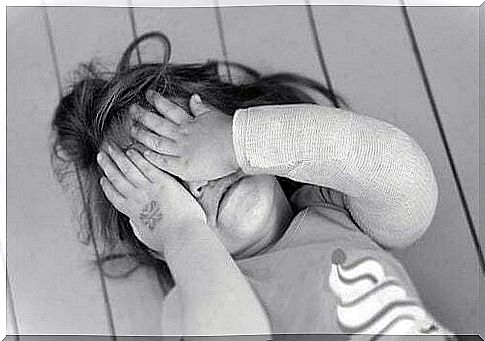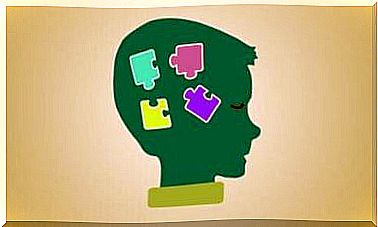René Spitz’s Anaclitic Depression

Anaclitic depression is the term coined by René Spitz in 1945. Spitz was an Austrian naturalized American psychoanalyst who worked as a psychiatrist at Mount Sinai Hospital and as a lecturer at several universities in the United States. He was the natural heir to Freud’s postulates, but he devoted himself above all to the care of children.
Spitz began researching children’s development in 1935, while still residing in Europe, via direct observation and the experimental method.
All his conclusions therefore had a solid empirical basis. In 1945 he conducted detailed research in an orphanage and from his observations the concept of anaclitic depression was born.
The work of this psychoanalyst had a great impact on the scientific community and on society in general. Much of his research was recorded in the short film Psychogenic Disease in Infancy, made in 1952.
The shooting had a major impact, to the point of favoring a change in the care of children in hospitals and orphanages. In addition to that, he showed the world the concept of anaclitic depression.
What is anaclitic depression?
When René Spitz began his research, it was thought in academic circles that depression was exclusive to adults. Some psychologists were convinced that the signs of this disorder were clinically irrelevant in children.
The psychoanalysts, for their part, pointed out that the little ones did not have the necessary capacity for reflection, therefore they could not suffer from depression. We are talking about the early 1930s.
Although these beliefs were quite widespread, two researchers distanced themselves from them and decided to conduct experiments to investigate their actual validity. The two researchers were René Spitz, who theorized the concept of anaclitic depression, and John Bowlby, who studied in detail the relationship between mother and child in childhood.
Spitz came to the conclusion that even children, from an early age, can be depressed. The psychoanalyst found that this state included a complete picture of well-defined symptoms.
In particular, his theory was based on the reaction of children to the sudden separation from the mother or from emotional ties for more than three months.

Symptoms of anaclitic depression
Spitz argued that anaclitic depression occurred in children under one year of age, particularly after developing the attachment bond to the mother and being abruptly separated from it for a period of three months.
If this happens, the little one begins to show a whole range of depressive symptoms. The most visible symptoms are the following:
- Loss of the ability to express oneself through gestures.
- Stop smiling.
- Anorexia or loss of appetite.
- Difficulty sleeping: the hours of sleep are reduced or altered.
- Slimming.
- Psychomotor retardation.
If the affective deprivation lasts longer than 18 weeks, all the symptoms worsen. The child enters a state that Spitz called “hospitalism”: the child becomes unable to establish stable emotional contacts and his health becomes frail. In many cases, it can lead to death.
The effects of research
It appears that Frederick II the Great, King of Prussia, conducted an experiment. It is said that he had an orphanage built where all the physical needs of the children were fully met.
In this place, aspects such as hygiene, food, clothing, etc. were treated in detail. Nonetheless, the children were forbidden to establish emotional bonds. Most of them died within a short time.

René Spitz’s studies on anaclitic depression have started a revolution in the management of orphanages, at least in the most developed countries. He showed that emotional bonds for children are as important or more important than the food itself. Later, their conditions in these facilities improved considerably.
Childhood depression exists and is on the rise worldwide. Suicide is currently the sixth leading cause of death in children between the ages of 5 and 14.
Furthermore, we cannot forget that children deprived of affection during the early stages of their life tend to develop behavioral disorders and lead a stormy existence studded with tragic events.









